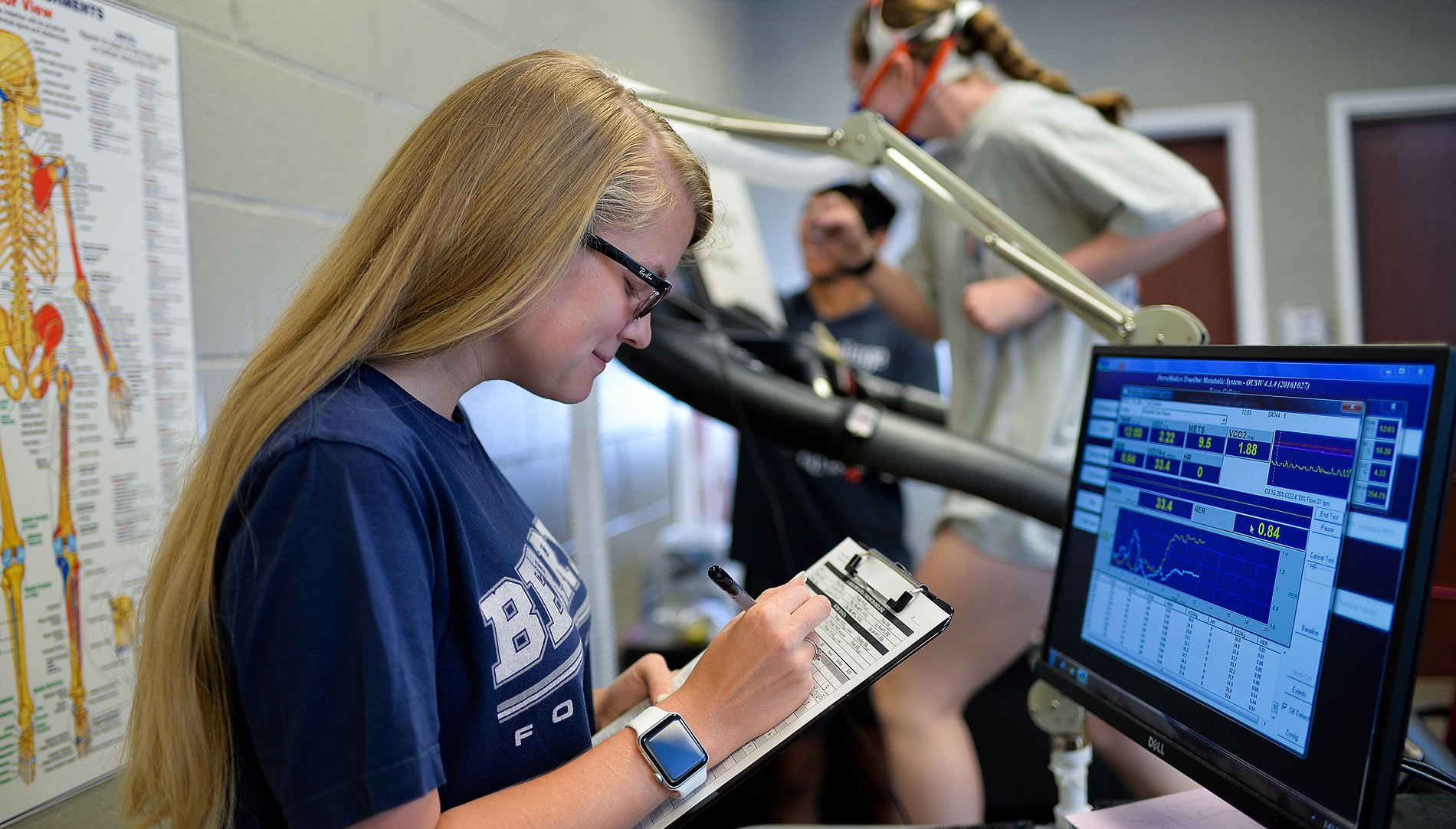The mechanisms behind an athlete throwing a winning touchdown pass and a child tossing a ball to a dog aren’t that different. This just goes to show how expansive the exercise science world is. Choosing this college major can pave the way for a role as a physical therapist or a doctor, but there are many careers you can pursue without seeking additional education.
So, what can you do with an exercise science degree? There are several potential paths depending on your specific interests. Start studying some of your options.
What can you do with an exercise science degree if you’re interested in sports?
You could help athletes improve their skills or serve more of a leadership role, especially if your education includes courses in sports administration.
1. Athletic director
These professionals are managers in the world of high school and college sports. Athletic directors work behind the scenes to prepare budgets, provide direction for the overall athletic program, manage facilities and oversee coaching staff. Many athletic directors begin their careers as coaches.
2. Athletic trainer
Trainers are invaluable to youth, high school, college and professional sports teams. They specialize in preventing and treating athletic injuries and are often the first ones to respond to an on-field incident. Most states require athletic trainers to become licensed or certified.
3. College or professional sports coach
Coaches help teams improve their skills and techniques, run practices, study opponents and create competitive strategies. There are also coaches at the high school level, but most of them are staff members who coach in addition to their full-time duties.
4. Sports scout
Scouts are tasked with acquiring top talent for their teams. Those who work for colleges or professional teams attend games and review athletes’ performances, study statistics to determine an individual’s potential, collaborate with coaches and offer incentives to potential players.
What can you do with an exercise science degree if your passion is personal fitness?
There are a number of ways you can use your training to work with people who aren’t involved in competitive sports to help them maintain a healthy lifestyle.
5. Exercise physiologist
Sick and injured patients sometimes need a structured fitness routine to work toward better overall health. Exercise physiologists fill this role by analyzing the individual’s medical history, performing fitness tests, measuring key health indicators and forming a tailored exercise program.
6. Fitness instructor
Fitness instructors typically lead group exercise classes, which can include performing demonstrations, giving feedback to clients to ensure good technique and providing modifications to meet different fitness levels. Employers typically prefer to hire candidates with a bachelor’s degree and a certification approved by the National Commission for Certifying Agencies (NCCA).
7. Personal trainer
These professionals work with clients to help them achieve their fitness goals. After an initial assessment, personal trainers craft a tailored plan and monitor their clients’ progress. Many personal trainers obtain certification to establish their expertise and increase their earning potential. You can also benefit from an education focus in strength and conditioning and the corresponding certification.
What can you do with an exercise science degree if you value community health?
If you’re looking to make a broader impact, a role that focuses on community wellness might be a good option.
8. Camp director
Exercise science students who enjoy working with children may want to consider becoming a camp director. These professionals oversee the entire camp program, approve all activities, hire staff and coordinate with counselors and parents. Obtaining credentials like CPR certification can be beneficial.
9. Health educator
Health educators bridge the gap between communities and healthcare providers by developing and implementing strategies to improve wellness. They often collect and analyze data, so a research background is useful. Some employers require certification as well.
10. Wellness director
Often employed in the corporate world, wellness directors implement programs that encourage employees to become more active and make healthier lifestyle choices. They often work in an organization’s human resources (HR) department and link their initiatives to employee benefits plans. As with most other fitness professions, wellness directors can boost their earning potential by obtaining certification.
Step onto your fitness-focused path
What can you do with an exercise science degree if you want to begin your career after college? By now, you can see there are plenty of options. Even if you have your sights set on an advanced degree in medicine or physical therapy, studying exercise science is a great preliminary step.
It could be time to start thinking about your education options. You might, for instance, be interested in a program that offers hands-on experiences and a number of concentrations within exercise science. Learn more about how you could start preparing for a career you love by visiting Berry College’s Exercise Science program page.



